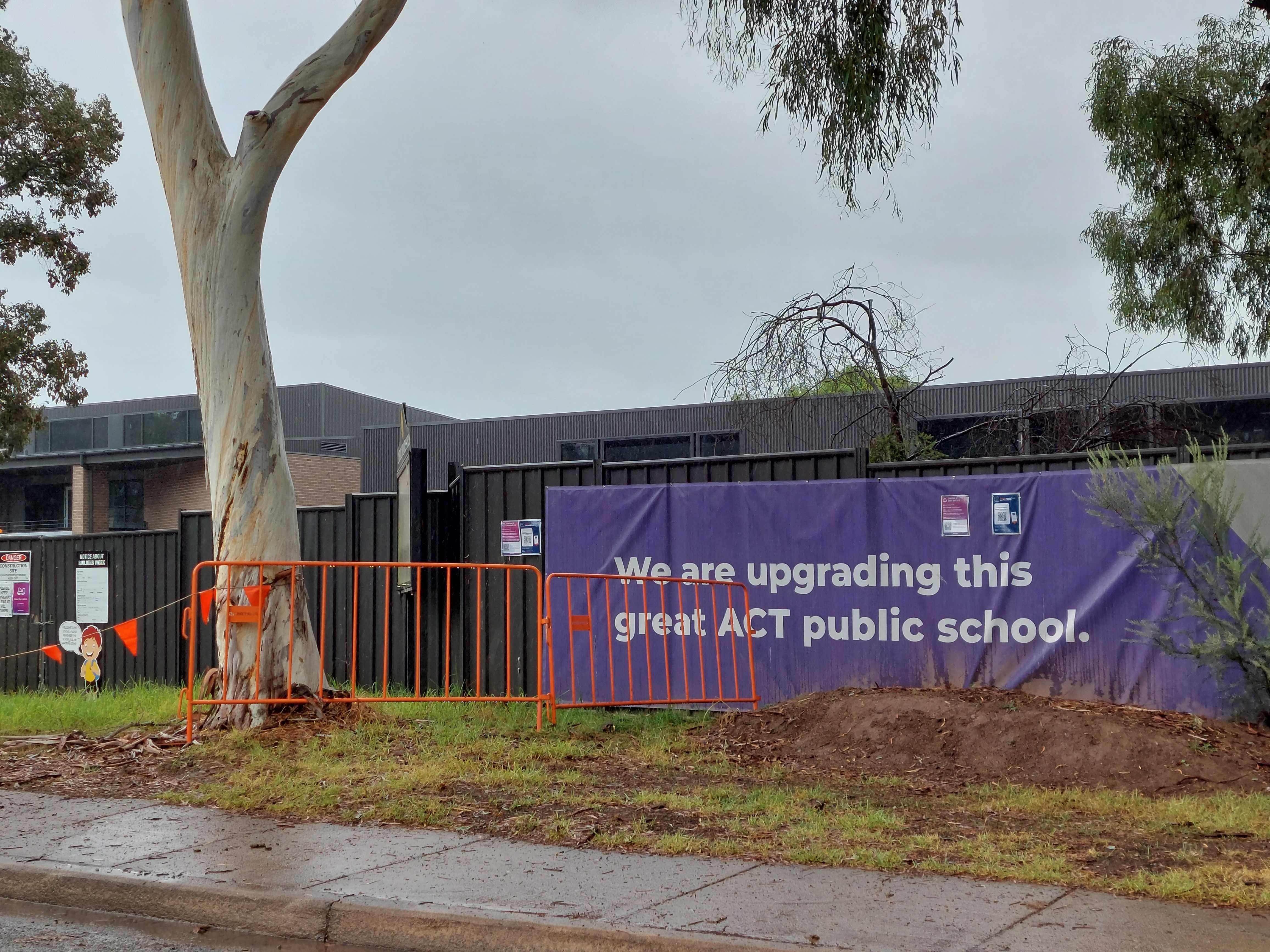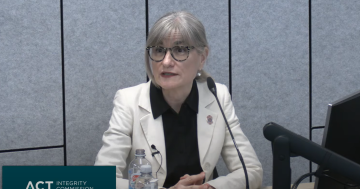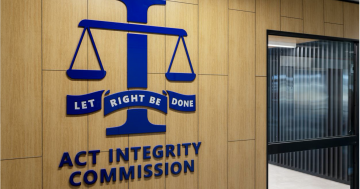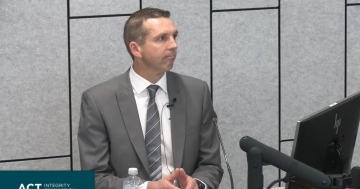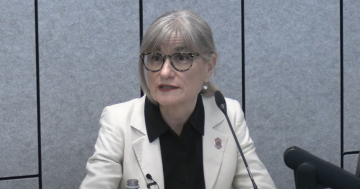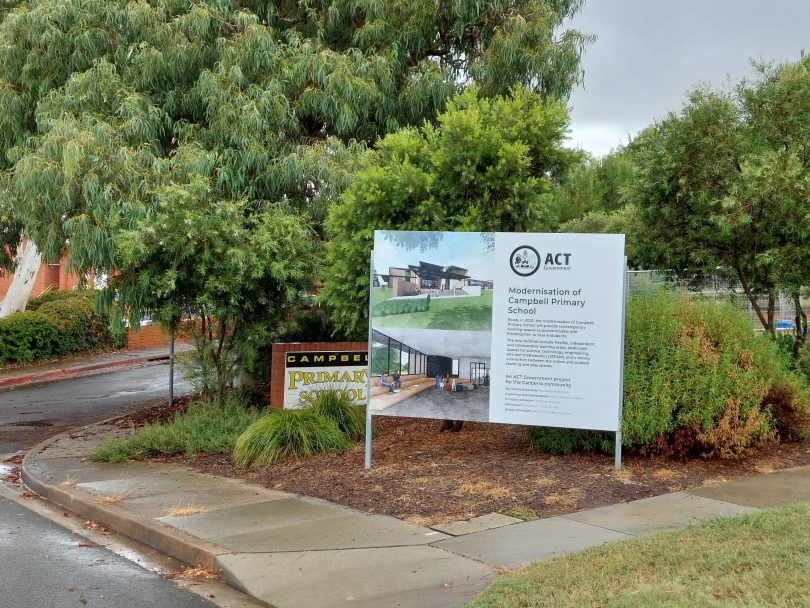
‘John Green’ previously told the commission that officials were “being directed for a political outcome” in the tender process for the Campbell Primary School expansion project. Photo: David Murtagh.
The Education Directorate official responsible for writing the brief recommending Lendlease for the Campbell School Expansion project admitted he should have “been a lot more transparent”.
“By this stage, I was totally over it so I was writing a brief to get this one off my plate because I was sick of Campbell,” the official known by the pseudonym John Green told the ACT Integrity Commission today (6 September).
The commission has heard that Mr Green was advised by Education Minister Yvette Berry’s office not to give the contract to Fyshwick-based Manteena despite it being identified as the preferred tenderer in two key stages of the procurement process and to instead recommend Lendlease.
Mr Green told the commission he drafted the minute to Education Director-General Katy Haire on 22 June 2020 despite knowing Lendlease was not the best value.
The commission was told the ACT Government could have saved nearly $900,000 if a different tenderer was chosen for the project.
“This is not the decision I would have made, but this is the decision that I was told needed to be made, so I was providing a brief to enable that decision to be made.”
Asked whether he had considered his own ethical obligations in providing a minute that doesn’t contain his honestly held views, Mr Green said, “I didn’t remember pausing too much”.
He admitted that in hindsight he “probably would have gone [into] a lot more detail, and forced a more robust conversation around it and been a lot more transparent in all the various factors that were going on”.
Asked whether he would have still drafted the note now, Mr Green said no.
The commission heard that, in a summary of the process, the brief did not reference the fact that two separate previous tender evaluation teams had scored Manteena’s bid higher than Lendlease’s.
“The reality was [Ms Haire] was being asked to reject a recommendation which had been in substance made by two separate evaluation teams whose scores, though not identical, reflected the same degree of significant variation,” Integrity Commissioner Michael Adams said.
Mr Green also agreed that the minute failed to include the “true, honest reason why this minute needs to be prepared”, as counsel assisting Callan O’Neill put it, “because you understood that the unions have a problem with Manteena“.
In previous hearings, the commission heard that rumours were circulating within the directorate that Ms Berry “may have been approached by the unions and asked why Manteena was getting all the jobs”.
Counsel assisting Callan O’Neill said the commission should expect to see in evidence that the ACT branch of the Construction, Forestry, Maritime, Mining and Energy Union (CFMEU) held a negative view of Manteena, and this was conveyed to Ms Berry and/or her chief of staff at various points during the procurement process.
Mr O’Neill also said the commission was likely to hear that there was a “line of communication” between the CFMEU and Ms Berry’s then-chief of staff, Joshua Ceramidas.
Mr Green admitted that the unions’ issue with Manteena wasn’t disclosed in his brief, “other than noting Secure Local Jobs a few more times than probably was really necessary”.
Mr Green also admitted he did not explain in an interview with the ACT Auditor-General that he had been given a direction by the Education Directorate, despite taking an affirmation the evidence he would give would be the truth, the whole truth and nothing but the truth.
Asked why he did this, Mr Green said: “At that stage, counsel, I was essentially presenting the corporate line to present the education directorate in the best possible way, and following the kind of ‘clean version of events’.”
Mr O’Neill asked Mr Green whether this was a deliberate decision that he had made, to which he said: “I think it was … I think I went into that to give the clean version, so yes.”
Asked whether he now acknowledges he should have told the Auditor-General that he had been directed not to recommend Manteena be awarded the contract, Mr Green said he did.
“I think this matter should have been known earlier, and I regret my part in not getting it out sooner, and it’s a decision that I have reflected upon many times since then and regret.
“I should have told them that I’d been directed to achieve an outcome, that the process wasn’t independent, it had been foreshadowed and, in fact, some parts of the process had been undertaken which would give opportunity to one tenderer over another,” he said.












